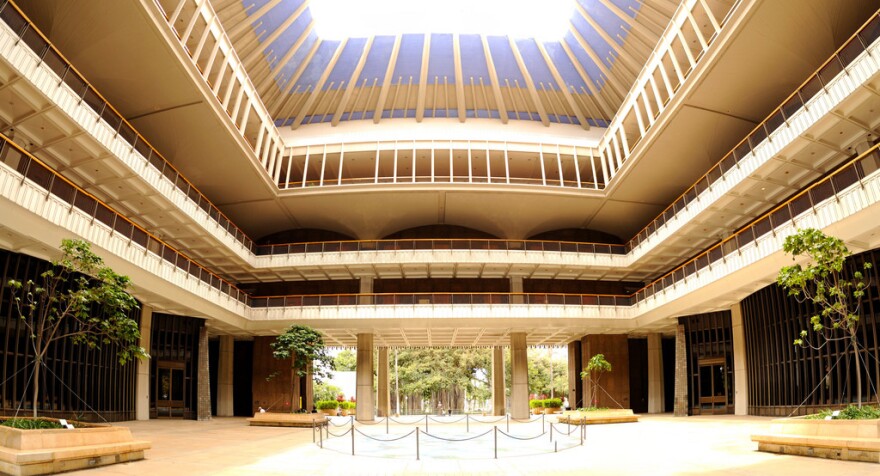Hawaii lawmakers on Friday wrapped up a legislative session upended by the coronavirus pandemic that forced weekslong breaks in proceedings, the state Capitol building to close and some meetings to be held via teleconference.
“It’s been incredibly challenging,” said Senate President Ronald Kouchi, a Democrat. “It’s certainly something that none of us has ever faced.”
Among the challenges: an estimated $2.3 billion decline in state tax revenue through next June. This prompted lawmakers to raid the rainy day emergency fund, authorize the governor to borrow money from the federal government and look for savings by eliminating vacant job positions.
They also faced social and economic crises as the pandemic shut down hotels and other businesses, pushing the state’s unemployment rate up to 22.6%, the second highest in the nation after Nevada.
To help, lawmakers appropriated $230 million in federal pandemic relief money to provide unemployed residents with an additional $100 per week beyond their normal unemployment insurance payments. Lawmakers hope this payment, which will last through December, will help make up for the loss of a $600 weekly unemployment benefit from the federal government that is due to expire at the end of this month.
They allocated $100 million in federal relief funds for rental and housing subsidies. Lawmakers estimate these funds will provide more than 34,000 households $500 or 50% of their rent, whichever is less. This will also last through December.
After the killing of George Floyd, a Black man, by police in Minneapolis in May sparked large protests in Hawaii and across the nation, lawmakers passed a police reform bill that died last year. The measure would amend the state’s open records laws to require the disclosure of misconduct that leads to a police officer’s suspension.
Ken Lawson, the co-director of the Hawaii Innocence Project and a University of Hawaii instructor in criminal and civil rights law, said the bill is a step forward, noting it will give the public a right to see how officers are being disciplined for acts like excessive use of force or other violations.
But he said it didn’t go far enough because the public still won’t know what kinds of complaints have been filed against officers, and how those complaints were investigated.
“How do we know that justice is being administered when it’s being done in the dark?” he said.
Two major mental health care reform measures passed, satisfying some of the priorities set at the beginning of the session before the pandemic.
One would allow courts to suspend judicial proceedings of defendants charged with petty misdemeanors, and send them to treatment instead. Another creates an option to take people in a mental health or substance abuse crisis to a behavioral health crisis center instead of an emergency room.
The pandemic forced lawmakers to split the regular 60-day legislative session into three parts. First, they suspended proceedings indefinitely on March 16. A few days later they shut down the state Capitol when a senator tested positive after traveling to Las Vegas.
Lawmakers returned in May for about 10 days to address budget issues and then reconvened once more on June 22 for other remaining business. But the Capitol remained closed to the public, and lawmakers didn't allow verbal testimony. The public was only allowed to submit written testimony.




